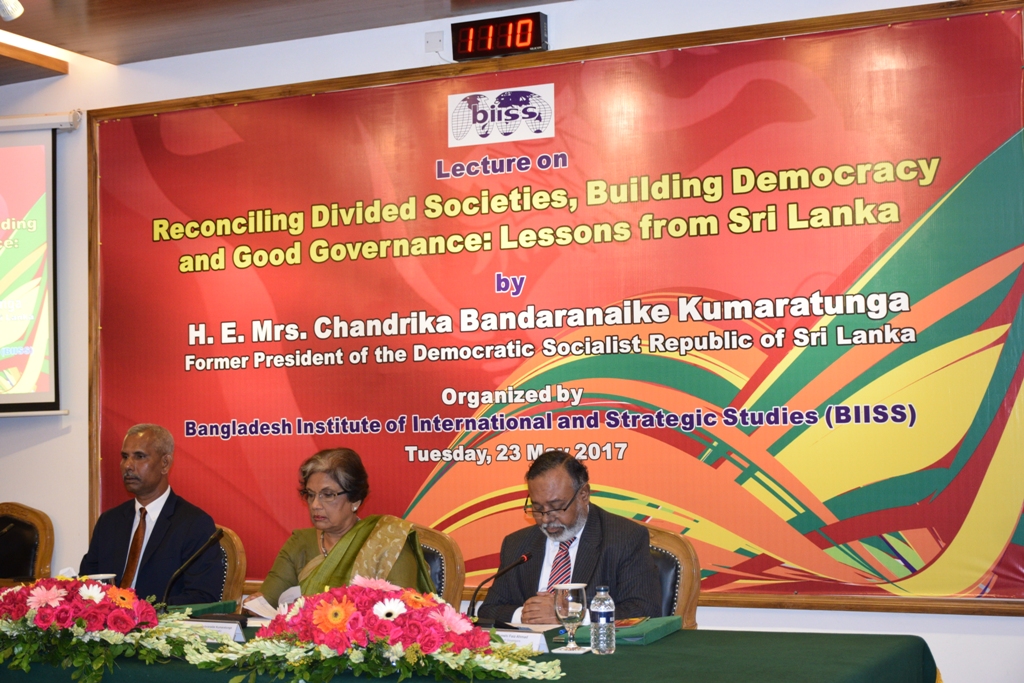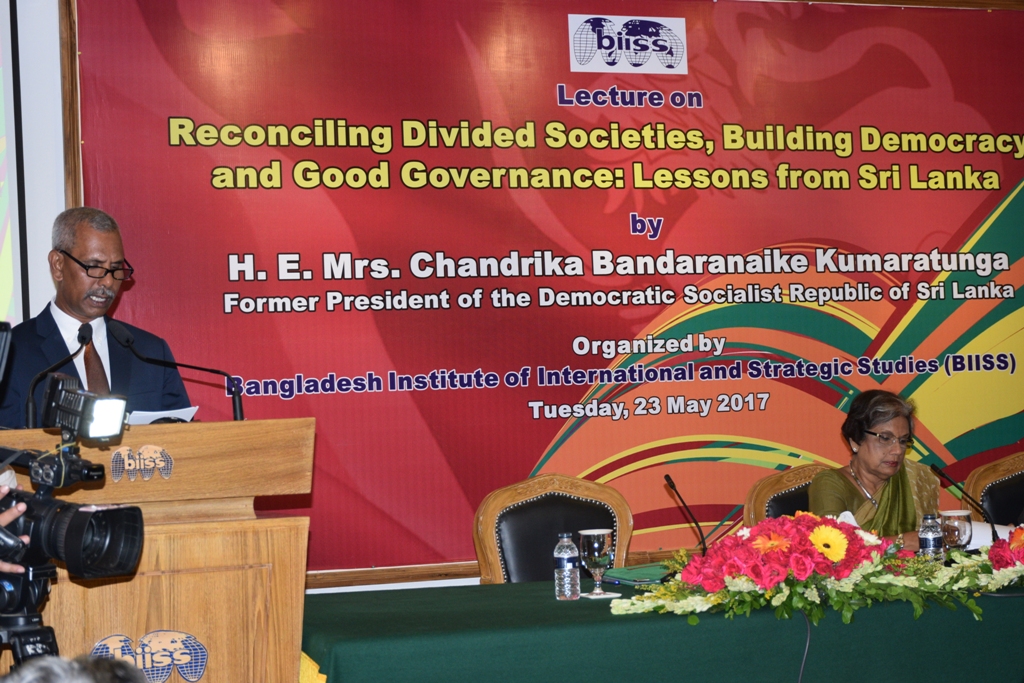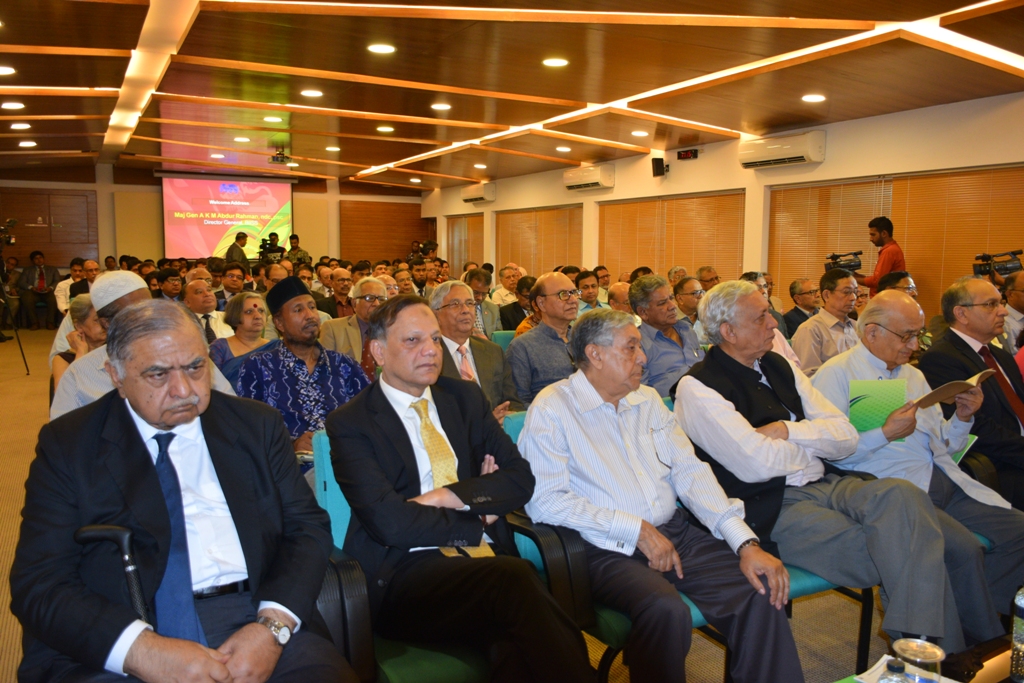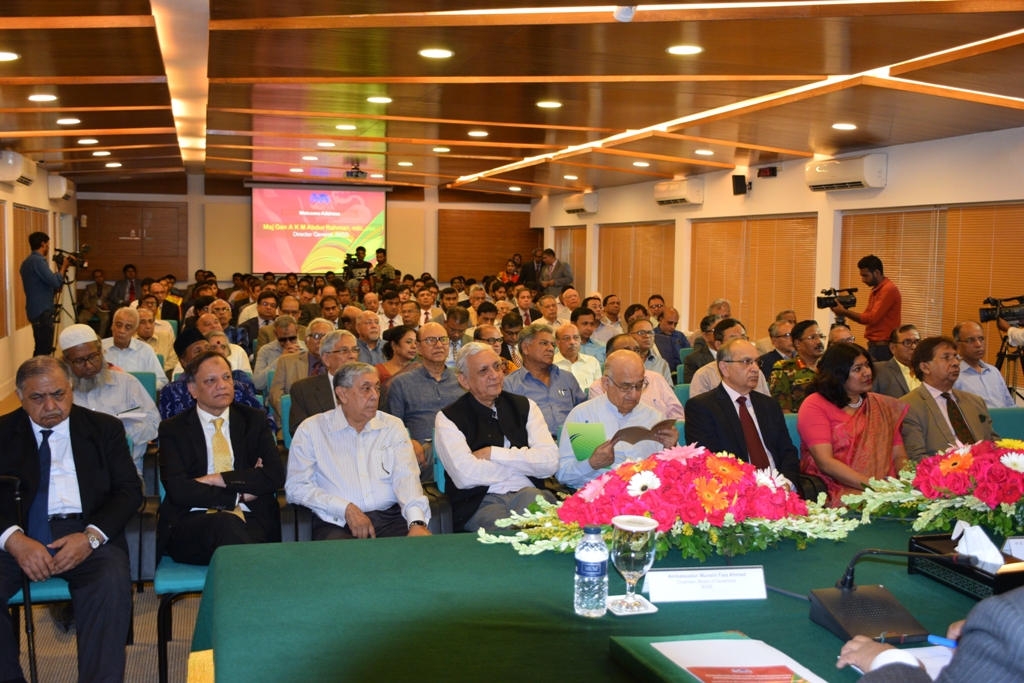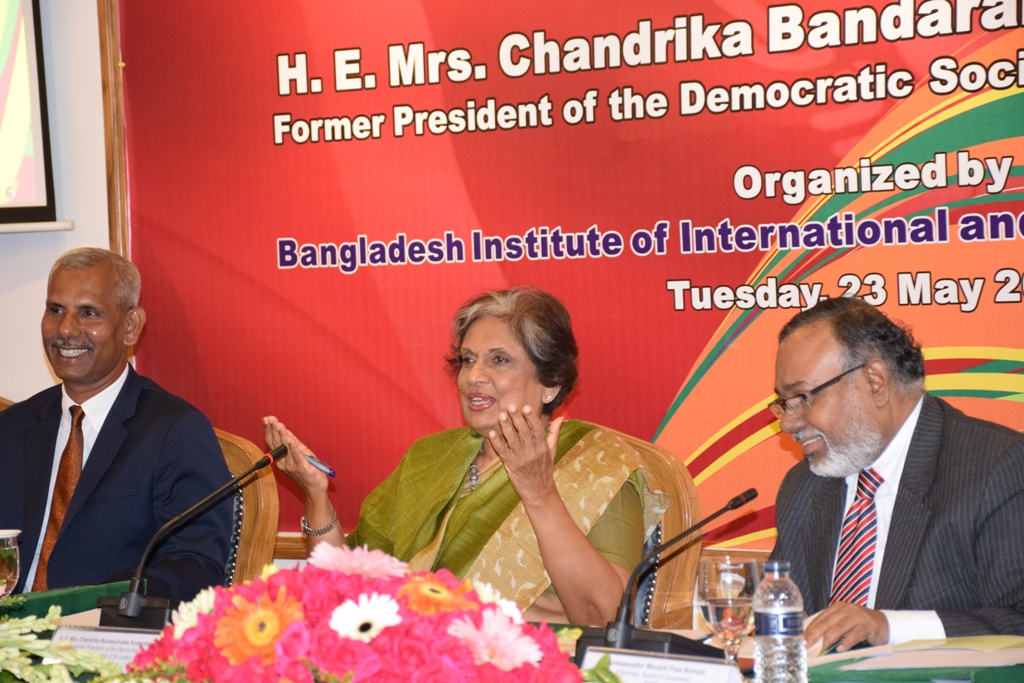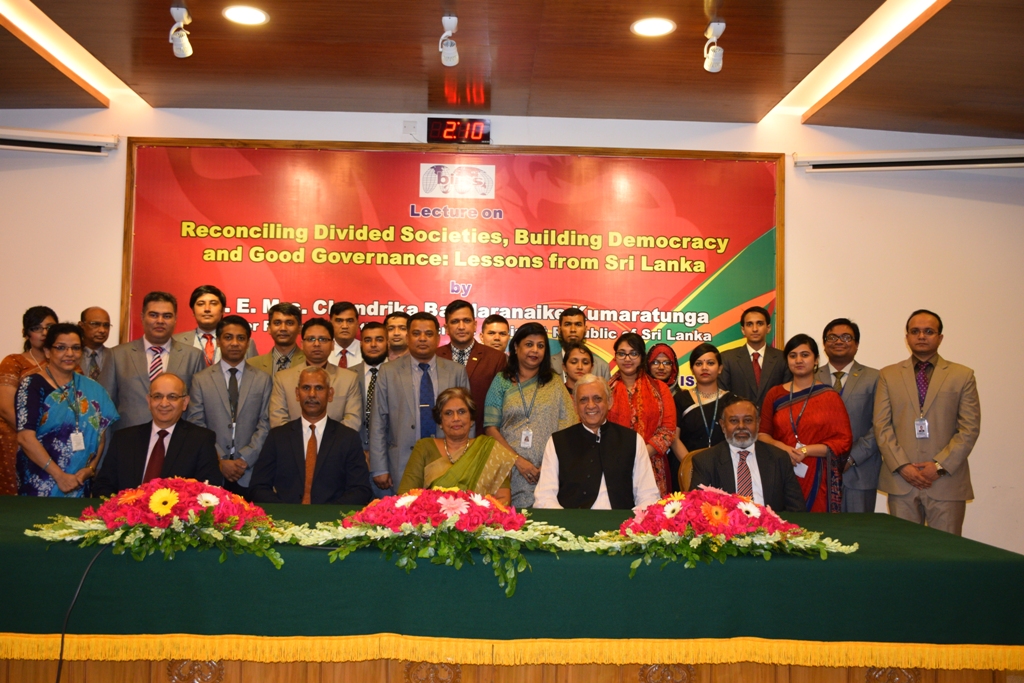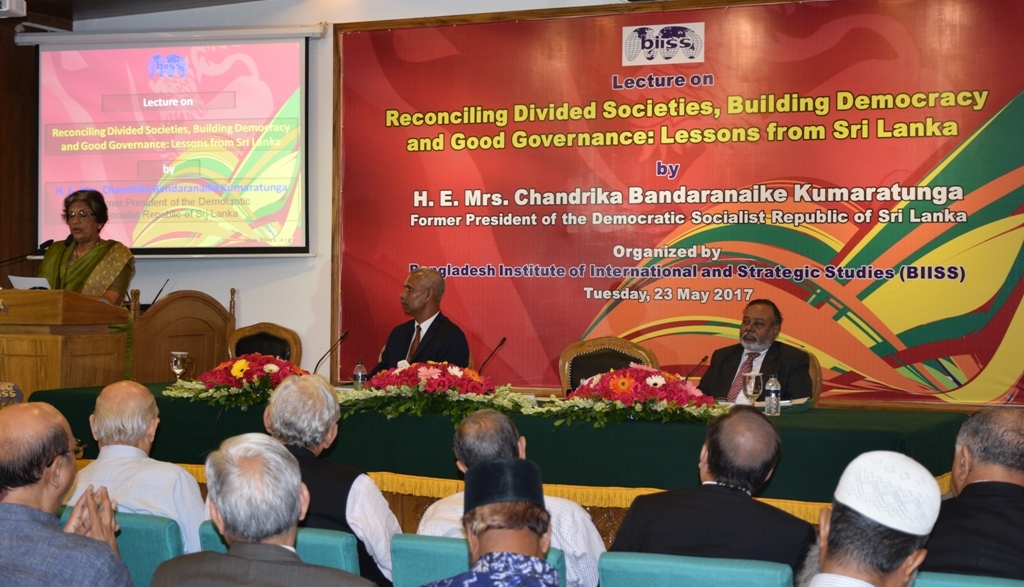Lecture on " Reconciling Divided Societies, Building Democracy and Good Governance: Lessons from Sri Lanka" on 23 May 2017
DATE: 2017-05-23
Bangladesh Institute of International and Strategic Studies (BIISS) organised a lecture titled “Reconciling Divided Societies, Building Democracy and Good Governance: Lessons from Sri Lanka” at its auditorium in Dhaka on 23 May 2017, where H. E. Mrs. Chandrika Bandaranaike Kumaratunga, former president of the Democratic Socialist Republic of Sri Lanka and member of Global Leadership Foundation was the Guest Speaker. Major General A K M Abdur Rahman, ndc, psc, Director General, BIISS delivered the address of welcome while Ambassador Munshi Faiz Ahmad, Chairman, Board of Governors, BIISS, chaired the session and delivered the closing remarks.
Mrs. Kumaratunga highlighted different aspects of Sri Lanka’s post civil war reconciliation and peacebuilding process. She also discussed her country’s present status of democracy as well as good governance. She argued that Sri Lanka had experienced the impacts of terrorism for nearly three decades; she further added that terrorism became the most unnatural, dehumanising and politically destabilising phenomenon in South Asia. While emphasising the need for identifying root causes of terrorism, she opined that the modern phenomena of terrorist movement was born due to frustration and disparity caused by social marginalisation, economic deprivation and political alienation. She emphasised on building pluralistic, multicultural and diversified society in South Asia. Regarding the importance of democracy, Mrs. Kumaratunga opined that many challenges to modern states could be addressed once democratic institutions are established. About regional organisations, she argued that SAARC and BIMSTEC utterly failed to resolve any regional problems. In her speech she also lauded Bangladesh's economic development.
Officials from different ministries of Bangladesh government, representatives of different embassies, representatives of different international and national organisations, former ambassadors, researchers of different institutes, high officials of different civil and military institutions, media and specialised academia participated in the open discussion and raised their valuable opinions, observations and questions to the seminar.

